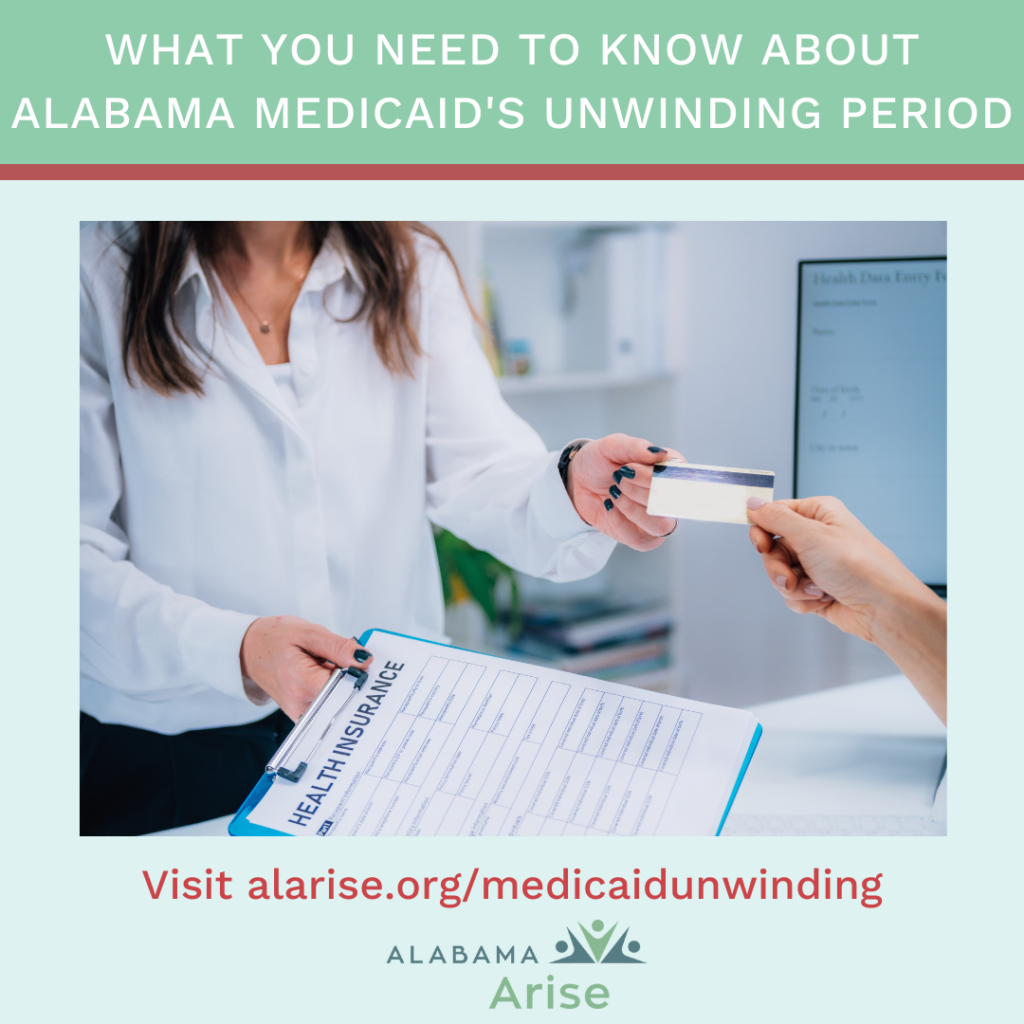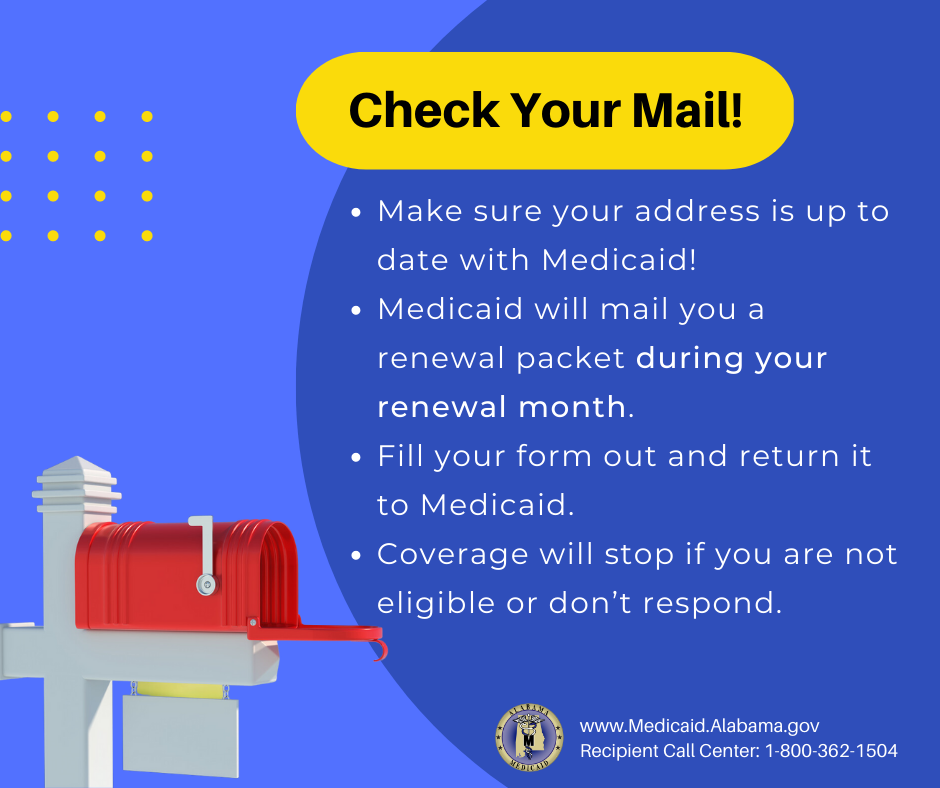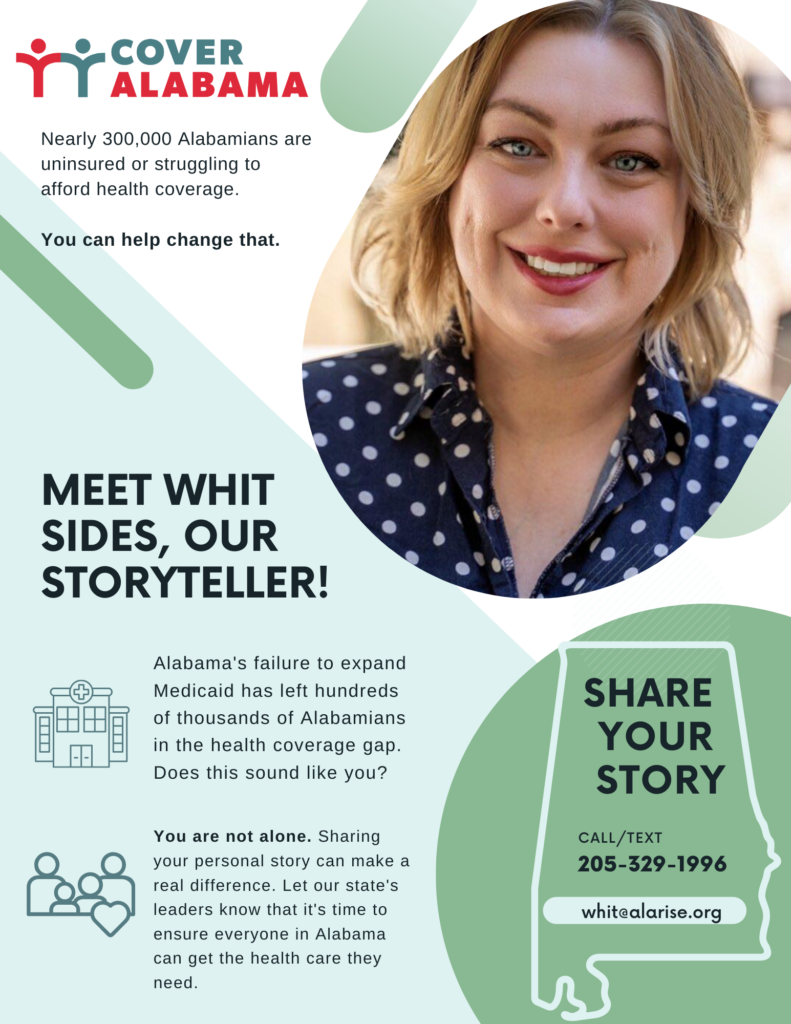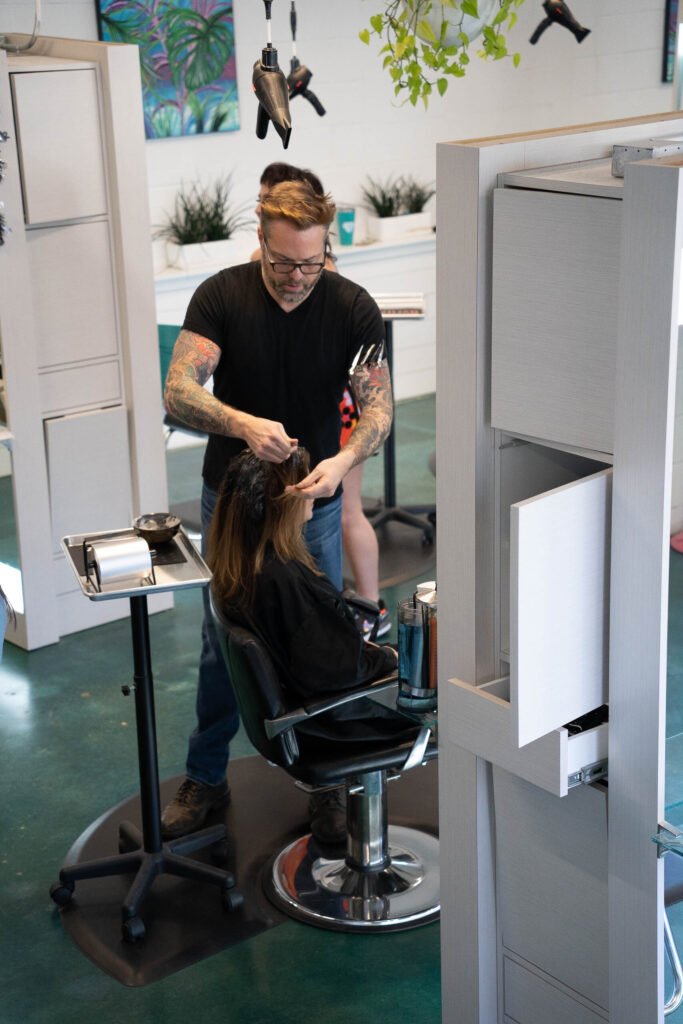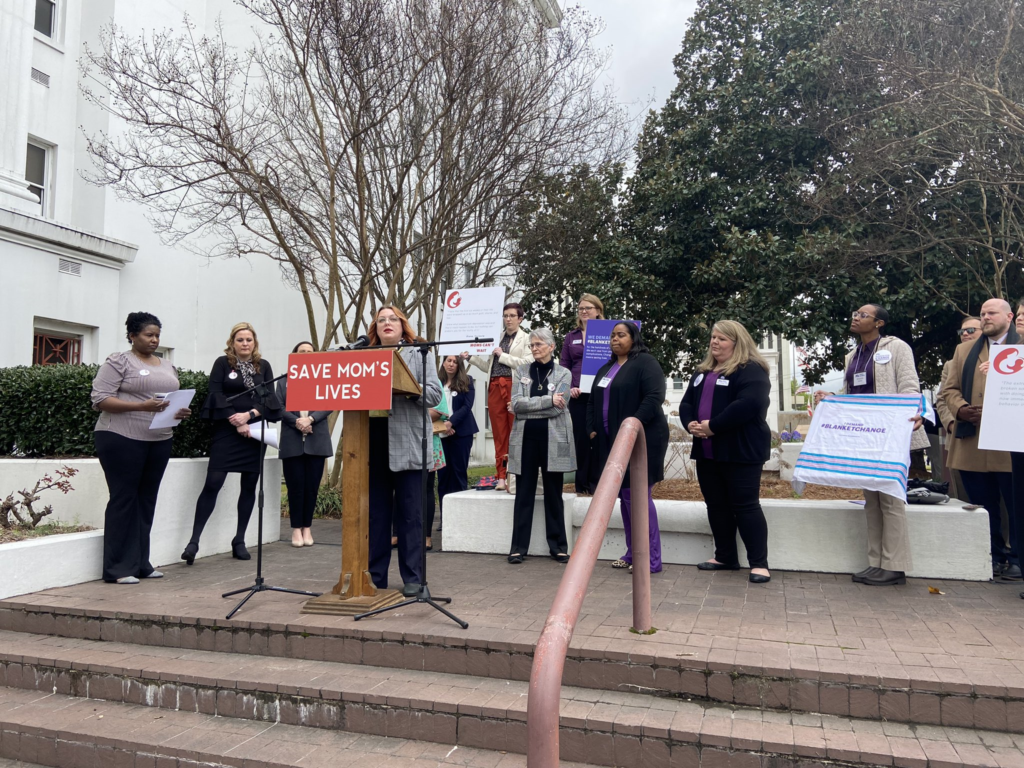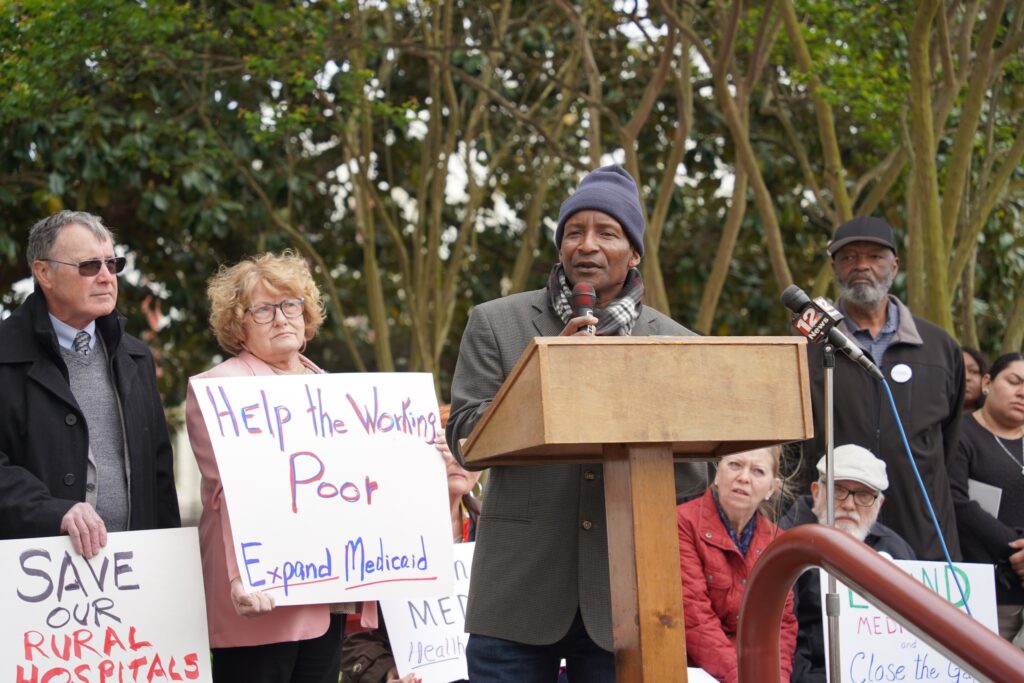Alabamians at every income level should be able to get the health care they need to survive and thrive. Medicaid plays a vital role toward meeting that goal, providing health coverage for more than 1 million Alabamians with low incomes. But tens of thousands of Alabamians may lose their Medicaid coverage by June 2024 in a process called “unwinding.”
Alabama Arise is working to minimize coverage losses during this period. As part of those efforts, we created this toolkit to explain the Medicaid unwinding and help connect people with other affordable coverage options for which they may be eligible.
Below is a table of contents for the resources in this Medicaid unwinding toolkit. Email info@alarise.org if you have any questions or recommendations for additional resources.
What is the Medicaid unwinding?
What Medicaid members should do next
How to appeal an eligibility determination
Where to look for new coverage
How has the Medicaid unwinding affected you?
Unwinding in the news
Additional resources
What is the Medicaid unwinding?
On April 1, 2023, Medicaid ended a continuous coverage eligibility period brought on by the public health emergency during the COVID-19 pandemic. What followed was a return to traditional eligibility requirements. This return to normal rules is called “unwinding.”
Alabama Medicaid has resumed its traditional process for verification of eligibility. More than 60,000 Alabamians may lose their coverage by June 2024 due to this change, researchers estimate. But Medicaid members who remain eligible can take steps to ensure they don’t lose coverage.
Current Medicaid members will receive mailings to their home addresses from Alabama Medicaid discussing these changes. Enrollees should ensure their most current and up-to-date information is on file by visiting the recipient portal here.
Read Alabama Arise’s blog post about what Medicaid members need to know about the unwinding.
Read Arise’s blog post about how Alabama can protect health coverage during the unwinding.
What Medicaid members should do next
Click here to make sure Medicaid has your current contact information. Answers to some common questions about the unwinding period are below.
(1) How will I know it is time to renew my Medicaid application?
Medicaid enrollees will receive a recorded phone message, text message and/or email when it is time to renew – if you have provided that contact information to the Alabama Medicaid Agency. These automated messages will not ask for a response.
Please call Medicaid directly at 800-362-1504 if you have questions or need assistance.
(2) How will I get my renewal packet?
Medicaid enrollees will receive a renewal packet by mail prior to their renewal month. Click here to find out your renewal month.
(3) What do I do when I receive my renewal packet?
Please complete your form and follow instructions to return it to Alabama Medicaid. If you need assistance, call Medicaid at 800-362-1504 or go in person to a local Medicaid office.
(4) How will I know if I keep my Medicaid benefits?
Alabama Medicaid will make a determination on your eligibility. The agency also may ask for more information if needed. You will receive a decision on your eligibility directly from Alabama Medicaid.
(5) Do I need to fill out the renewal form if I know I don’t qualify for Medicaid anymore?
You should fill out the renewal form – even if you think you don’t qualify anymore. You can fill out the paper form or go online to submit the information. Or you can call the Medicaid office in your area to renew. Once you submit your information, you will be considered for any of the Medicaid programs for which you are eligible.
(6) Where can I find some helpful unwinding resources from Alabama Medicaid?
- Update your address
- Contact your local Medicaid office
- Medicaid partner communication toolkit (opens as PDF)
- Medicaid partner tip sheet (opens as PDF)
How to appeal an eligibility determination
Alabama Medicaid will make an eligibility determination and notify you of that decision. This notification will have a termination date if your benefits are ending.
(1) What if I received notice that I am no longer eligible for Medicaid?
You can appeal this decision, reapply for Medicaid benefits or contact Enroll Alabama to submit an application on the Health Insurance Marketplace portal.
(2) What if I want to stay on Medicaid but need to update my information?
Click here to reapply to Medicaid with your updated information.
(3) What If I believe the termination notice from Medicaid is incorrect?
The first step that you can take is to request a review of Medicaid’s decision or a conference to discuss your case. You or someone helping you must contact a Medicaid district office and request a review or conference. You may be asked to provide more information to Medicaid. A conference may be helpful when additional information is needed to support your eligibility claim.
(4) What do I do if Medicaid does not find me eligible after my review or conference?
The next step is to request a fair hearing. You must make your request in writing no later than 60 days from the date of your termination letter or 60 days from the decision of your review or conference. You must mail your request for a hearing to the following address:
Medicaid Agency – Central Office
Alabama Medicaid Agency
P.O. Box 5624
Montgomery, AL 36103-5624
Call Alabama Medicaid at 334-242-5741 for information on a fair hearing request.
Where to look for new coverage
Did you or someone you know lose health coverage due to the Medicaid unwinding? Other affordable coverage options may be available.
Contact Enroll Alabama for more information on enrolling in a plan through the Health Insurance Marketplace at healthcare.gov. Many Alabamians are eligible for Marketplace coverage at little or no cost thanks to subsidies under the Affordable Care Act.
How has the Medicaid unwinding affected you?
Alabama can protect families and make health coverage more affordable by expanding Medicaid to cover adults with low incomes. Your personal story can help influence legislators and inspire advocates to take action.
You’re not alone. Nearly 300,000 Alabamians who are uninsured or struggling to afford coverage would benefit from Medicaid expansion. When you share your story, you help make the issue real for people. And you help show what’s at stake if we don’t close Alabama’s health coverage gap.
Arise’s Cover Alabama storyteller Whit Sides is gathering and telling the stories of Alabamians living in the coverage gap. Click here to share your story.
Unwinding in the news
- AL.com: Status of 129,000 Alabama Medicaid enrollees uncertain after post-pandemic emergency
- Alabama Daily News: Alabama starts removing people off Medicaid, but won’t yet say how many
- Alabama Reflector: Post COVID-emergency, Alabama not reporting how many people lost Medicaid coverage
- CNN: Medicaid eligibility: More than a million people have lost their Medicaid coverage already. It’s far from over
- Managed Healthcare Executive: Understanding the long-term implications of Medicaid unwinding
- NPR: Texas Medicaid dropped more than 500,000 enrollees in one month
- PBS NewsHour: Why some cancer patients will fall off a Medicaid coverage cliff this summer
- Washington Post: Paperwork mistakes should not end a child’s health coverage
- WBRC Fox 6, Birmingham: What to know if you’re losing your Medicaid coverage in Alabama
Additional resources
- Center on Budget and Policy Priorities: Unwinding watch: Tracking Medicaid coverage as pandemic protections end
- Georgetown University Center for Children and Families: Webinar series: Unwinding the COVID-19 Medicaid continuous eligibility provision
- Harvard T.H. Chan School of Public Health: The problem with Medicaid ‘unwinding’
- KFF: Medicaid enrollment and unwinding tracker
- Medicaid.gov: Unwinding and returning to regular operations after COVID-19
- National Association of Medicaid Directors: Unwinding resources

